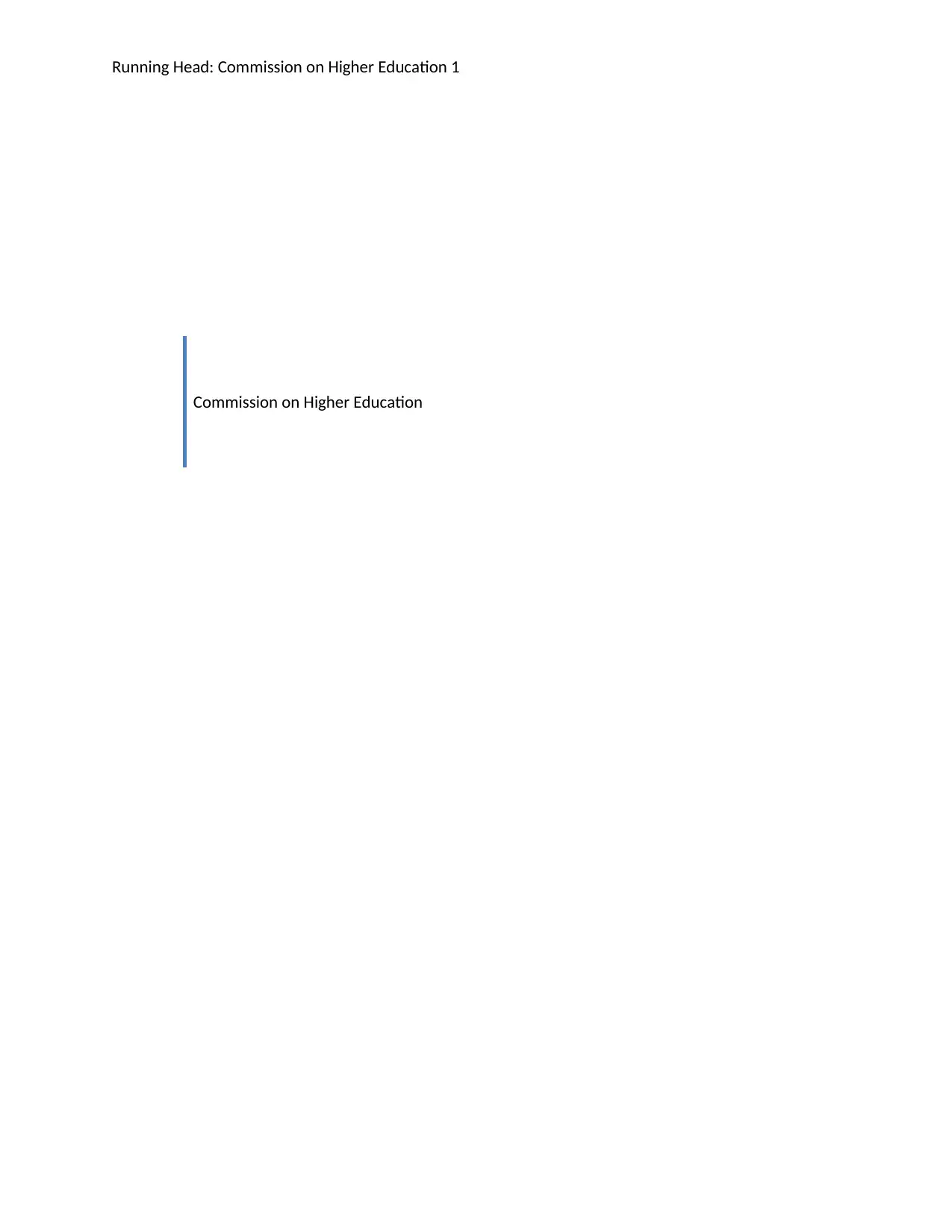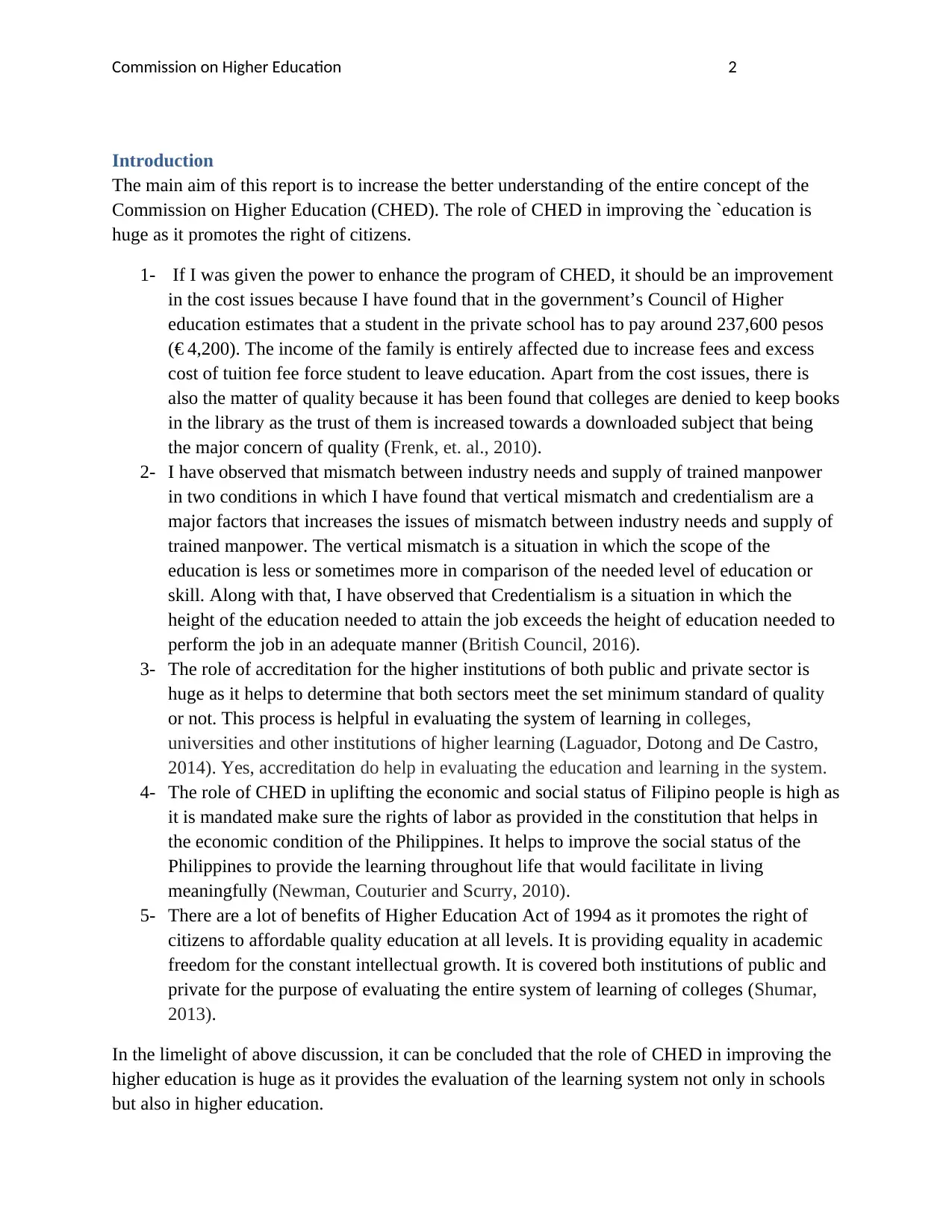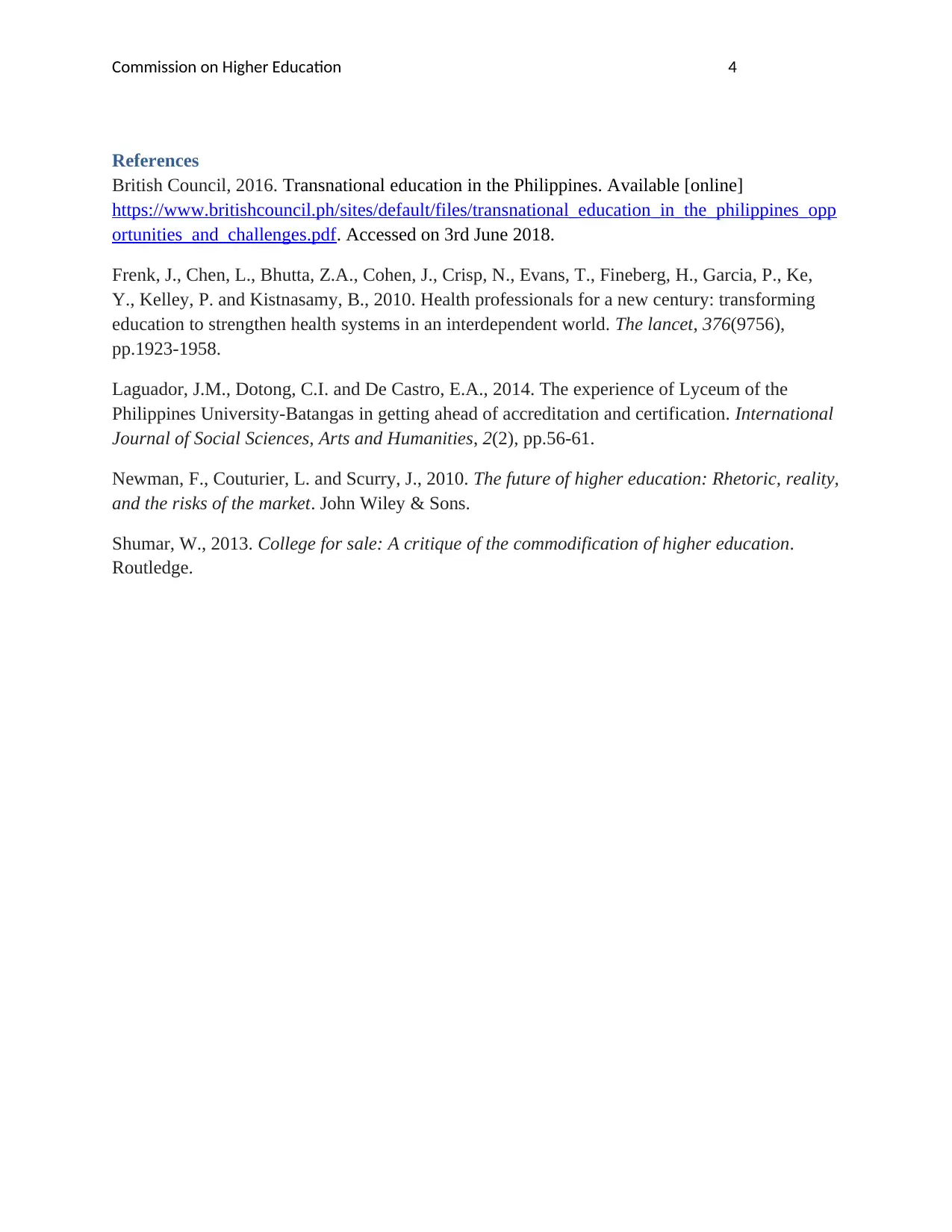Commission on Higher Education (CHED) and Philippine Education
VerifiedAdded on 2023/06/11
|4
|801
|387
Report
AI Summary
This report provides an analysis of the Commission on Higher Education (CHED) in the Philippines, focusing on its role in improving higher education. It addresses key issues such as the high cost of private education, quality concerns, and the mismatch between industry needs and trained manpower. The report also discusses the importance of accreditation in maintaining quality standards in higher education institutions and CHED's role in uplifting the economic and social status of Filipino people. Furthermore, it highlights the benefits of the Higher Education Act of 1994 in promoting affordable and quality education. The report concludes that CHED plays a crucial role in evaluating and improving the learning system in both public and private higher education institutions.
1 out of 4





![[object Object]](/_next/static/media/star-bottom.7253800d.svg)